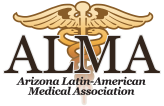Strive for healthy body, mind and spirit.
To Prevent Is To Cure
Protecting your health and that of your family is important to the quality of your life and that of your loved ones. It is essential for you and your family to follow healthful practices to reduce the risk of catastrophic illness.
To lead a healthy lifestyle, simply follow these wellness suggestions:
- Exercise regularly
- Reduce and/or learn to manage stress
- Eat healthy and limit your portions
- Drink plenty of water daily
- Laugh and be happy
- Avoid addictive drugs
- Avoid nicotine products and second-hand smoke
- Avoid or drink alcoholic beverages in moderation
- Make time for spiritual and leisure time
- Establish a home base with a family physician. Provide the physician with a list of all the medications you are taking. Make sure the list is complete. Another option is to take the medication containers to the physician to include them in your records.
Obesity Resource for Patients
Obesity – familydoctor.org – Learn More
Information for Patients (The Obesity Society) – Learn More
Brochures/Guides Obesity (Obesity Action Coalition) – Learn More
Patient Journey Obesity (American Association of Clinical Endocrinology) – Learn More
Request Your FREE Fibroscan Appointment! (Arizona Liver Health) – Learn More
Older adults memory loss?
Alzheimer’s, Dementia or Mild cognitive impairment symptoms? Seek Assistance.
English & Spanish Neurology Consultations – 602-258-3305
Victor Salazar Calderón, MD – Learn More Ver en Español
caring.com Arizona – Learn More
caring.com – Learn More
Assisted Living – Learn More
Understanding Skilled Nursing Facilities in Arizona – Learn More
When Distance Becomes a Challenge – Learn More Español
Physician Provider Selection
As a patient you should make every effort to receive your health care from a primary care physician. Physicians considered primary care physicians include:
- Family Practice and General Practice Physicians for the entire family;
- Pediatricians for newborn and young children no older than eighteen years of age; and
- Obstetrics & Gynecology Physicians for female patients. Your primary care provider can refer you to a specialist as needed.
Take the time to establish a permanent primary care home. Visit your family physician at least once a year for a health check-up even if you feel great. This will keep your medical records up-to-date. “An ounce of prevention is worth a pound of cure!”
Urgent Care
Use Urgent Care services when you have an urgent need to see your primary care physician but cannot do so immediately. Urgent Care Centers are normally used for allergies, sinus infections, colds & coughs, flu-like Symptoms, sore throat, dizziness, earaches, fever, insect bites, minor cuts and lacerations, minor back pain, sprains, strains, rashes, upset stomach, vomiting, trauma, fainting and diarrhea.
DO NOT USE HOSPITAL EMERGENCY ROOM SERVICES AS A SUBSTITUTE FOR YOUR PRIMARY OR URGENT CARE NEEDS. GO TO AN URGENT CARE CENTER IF YOU CANNOT SEE A PRIMARY CARE PHYSICIAN UNLESS IT IS AN EXTREMELY SERIOUS MEDICAL NEED.
Tips for uninsured and underinsured on avoiding financial ruin in the USA due to illness:
- Consider obtaining a low cost, high deductible ($7,000 – $15,000), Catastrophic Health Insurance Policy to avoid economic ruin resulting from hospital care.
- Pay for your healthcare in cash and insist on a discount from standard fees. Charge cards and personal checks will not provide you the discount cash payment provides.
Pharmacy
GOODRx PRESCRIPTION SAVINGS CARD IS FREE* (*This card provides a free pharmacy service but also provides additional paid services that are optional). Accepted at 70,000+ pharmacies including CVS, Walmart, Walgreens, Safeway, Sam’s Club, Albertsons and Costco.
Show card to pharmacist to save on prescriptions. Insurance doesn’t always get you the lowest price.
Visit GoodRx to download the FREE mobile app, compare prices, manage prescriptions, and more.
Obesity Resource for Providers
Overweight & Obesity (Centers for Disease Control and Prevention, CDC)
Obesity and Overweight (World Health Organization)
FORWARD: Focus on Obesity Education Curriculum (includes slides, podcasts, and videos) (Scientific Exchange)
Guideline for the Management of Overweight and Obesity in Adults (2013 American Heart Association/American College of Cardiology/ The Obesity Society)
Comprehensive Clinical Practice Guidelines For Medical Care of Patients with Obesity (American Association of Clinical Endocrinologists and American College of Endocrinology)
Clinical Practice Guideline for the Evaluation and Treatment of Children and Adolescents with Obesity (American Academy of Pediatrics)
A Review of Current Guidelines for the Treatment of Obesity (American Journal of Managed Care)
Arizona Department of Health Services – Obesity Prevention (Arizona Department of Health Services)
Overweight & Obesity Prevention Strategies & Guidelines (CDC)
Recommended Community Strategies and Measurements to Prevent Obesity in the United States (CDC)
Interventions for Preventing Obesity in Children (Cochrane Review)
A Framework for Increasing Equity Impact in Obesity Prevention (American Journal of Public Health)
Body Mass Index: Considerations for Practitioners (CDC)
Weight Loss to Prevent Obesity-Related Morbidity and Mortality in Adults: Behavioral Interventions (U.S. Preventive Services Task Force)
Using Motivational Interviewing to Promote Healthy Weight (Family Practice Management)
Arizona Obesity Organization (AOO)
American Association for Metabolic and Bariatric Surgery (ASMBS) – Arizona State Chapter
The Obesity Society (TOS)

